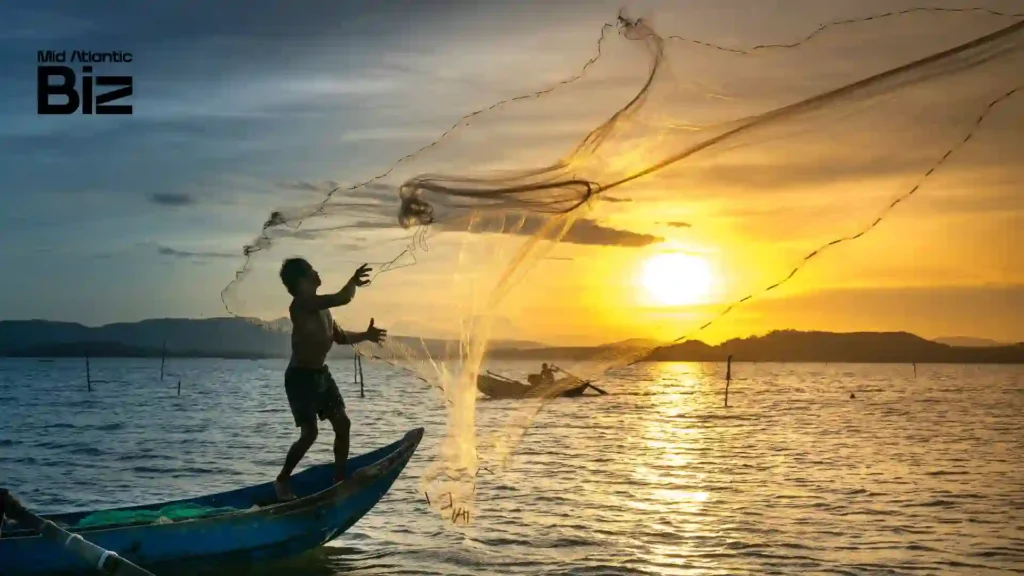
The shadow economy—a web of illegal activities operating outside formal economic systems—has long affected industries worldwide. One of its most alarming manifestations is the growing involvement of drug cartels in illegal fishing operations, particularly in the Gulf of Mexico. Beyond the criminal implications, these activities disrupt marine ecosystems, undermine legitimate businesses, and create economic challenges for U.S. coastal industries.
This article explores the intersection of drug cartels, illegal fishing, and their impact on U.S. coastal industries, highlighting the economic, environmental, and regulatory challenges while proposing actionable solutions.
The Nexus Between Drug Cartels and Illegal Fishing
Drug cartels have increasingly turned to illegal fishing as a lucrative secondary revenue stream. Using fishing boats as a cover, cartels smuggle drugs, weapons, and even human cargo while harvesting high-value fish species, such as red snapper and totoaba, for black-market sale. The dual-purpose nature of these operations enables cartels to exploit both marine resources and global demand for seafood.
Why Cartels Target Fishing
- High Profit Margins: Certain fish species command high prices in international markets, making illegal fishing highly profitable.
- Low Risk: Compared to drug trafficking, illegal fishing faces less stringent enforcement and lower penalties, reducing the risk for cartels.
- Dual Functionality: Fishing boats serve as inconspicuous platforms for smuggling, allowing cartels to diversify their operations.
Economic Impacts on U.S. Coastal Industries
Illegal fishing operations have severe economic consequences for legitimate fishing businesses and related coastal industries in the U.S.
1. Loss of Revenue for Legal Fisheries
The overharvesting of species like red snapper by illegal operators depletes fish stocks, reducing catches for legal fisheries. This results in lower revenues for American fishers, particularly small-scale operators who rely heavily on sustainable stocks.
2. Market Price Distortions
Cartel-linked illegal fishing floods markets with unregulated, low-cost seafood, driving down prices for legitimate products. This creates an uneven playing field for law-abiding businesses, which face higher costs due to compliance with regulations and sustainability measures.
3. Economic Ripple Effects
Coastal communities depend on the fishing industry for employment, tourism, and local commerce. The erosion of legal fishing operations due to cartel activities impacts these communities, leading to job losses and declining economic vitality.
Environmental and Ecological Consequences
Illegal fishing by cartels poses a significant threat to marine ecosystems and biodiversity.
1. Overfishing
Unsustainable harvesting practices by illegal operators deplete fish populations, disrupting the ecological balance. Overfishing of red snapper, for instance, has led to declining stocks in the Gulf of Mexico, threatening the long-term viability of the species.
2. Destruction of Marine Habitats
Illegal fishing methods, such as bottom trawling and unregulated netting, destroy delicate marine habitats like coral reefs and seagrass beds. These habitats are essential for the reproduction and survival of various marine species.
3. Bycatch and Waste
Cartel-affiliated fishing operations often use unselective gear, leading to high levels of bycatch—the capture of non-target species, including endangered marine life. This wasteful practice further depletes marine resources and damages ecosystems.
Regulatory and Enforcement Challenges
Efforts to combat illegal fishing by cartels face numerous challenges:
1. Insufficient Maritime Patrols
Limited resources and jurisdictional complexities make it difficult for U.S. authorities to patrol vast ocean territories effectively. Cartels exploit these gaps to operate with relative impunity.
2. Lack of International Cooperation
Illegal fishing is a transnational issue requiring coordinated efforts between countries. However, inconsistent enforcement and weak legal frameworks in some nations enable cartels to exploit loopholes.
3. Limited Transparency in Supply Chains
The seafood supply chain is notoriously opaque, making it difficult to trace the origin of fish products. This allows illegally caught fish to enter legitimate markets undetected.
The Broader Shadow Economy Connection
The integration of illegal fishing into cartel operations is part of a larger shadow economy that includes drug trafficking, human smuggling, and money laundering. These activities often intersect, amplifying their impact on legitimate industries and undermining economic stability.
Addressing the Impact: Solutions and Strategies
Tackling the nexus of drug cartels and illegal fishing requires a multi-faceted approach involving governments, businesses, and international organizations.
1. Strengthening Maritime Enforcement
- Increase funding for Coast Guard and maritime patrols to improve surveillance and interception capabilities.
- Invest in advanced technologies such as satellite monitoring and AI-driven analytics to track illegal fishing activities.
2. Enhancing International Cooperation
- Promote bilateral and multilateral agreements to address transnational illegal fishing.
- Establish shared databases and intelligence networks to facilitate real-time information sharing between countries.
3. Implementing Traceability Measures
- Require seafood companies to adopt traceability systems that track products from catch to consumer.
- Use blockchain technology to create tamper-proof records of the seafood supply chain, ensuring transparency and accountability.
4. Increasing Penalties for Illegal Fishing
- Enact stricter penalties for illegal fishing, particularly when linked to organized crime.
- Treat cartel-affiliated fishing operations as a national security threat, enabling the use of anti-trafficking laws and resources.
5. Supporting Sustainable Practices
- Provide incentives for legal fisheries to adopt sustainable practices and invest in eco-friendly technologies.
- Engage coastal communities in conservation efforts, creating economic opportunities through ecotourism and marine restoration projects.
The Role of Businesses in Combating Illegal Fishing
U.S. businesses, particularly those in the seafood industry, have a critical role to play in addressing the impacts of illegal fishing. By adopting ethical sourcing practices, supporting sustainability initiatives, and collaborating with enforcement agencies, companies can help curb the influence of cartels in the industry.
Conclusion
The involvement of drug cartels in illegal fishing underscores the interconnectedness of the shadow economy and its far-reaching impacts on U.S. coastal industries. Beyond the economic and environmental damage, these activities threaten the livelihoods of hardworking fishers and the integrity of marine ecosystems.
Addressing this issue requires a united effort from governments, businesses, and communities. By strengthening enforcement, enhancing transparency, and supporting sustainable practices, stakeholders can disrupt the cartel-driven shadow economy and protect the future of coastal industries.
As the battle against illegal fishing continues, the resilience and innovation of legitimate businesses will be key to preserving the economic and ecological health of America’s coastal regions.
Article By : Mid Atlantic Biz












